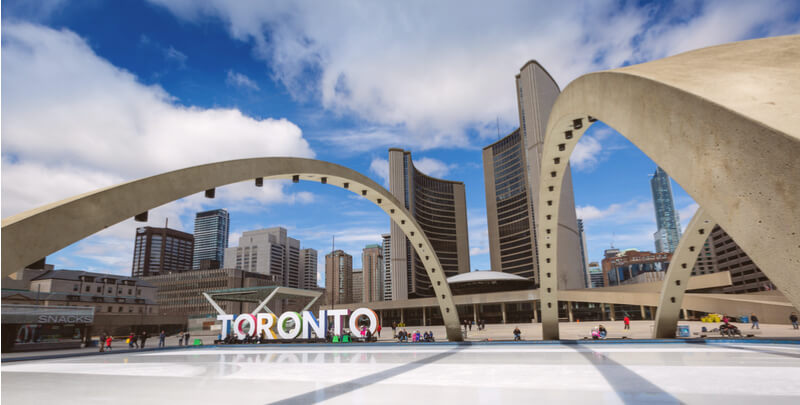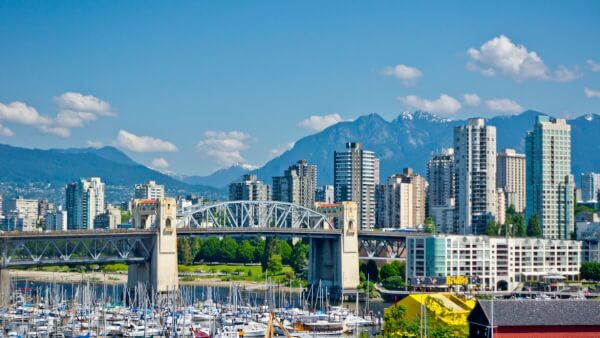How much does it cost to have a baby in Canada
Find out how much does it cost to have a baby in Canada, including hospital fees, health insurance and other expenses.

Whether you’re starting a new school, job, or setting off on an adventure, Canada is a wonderful place to live.
In this complete relocation guide you’ll learn all of the ins and outs of what it’s like to live as a Canadian. Below you’ll find tips on landing new accommodation and employment, steps to set up a bank account and health insurance, and the typical costs of living.
Before moving to Canada, it’s helpful to understand some basic statistics:
If you’re looking to relocate permanently to Canada, there are generally two ways of doing it: economic immigration or family reunification. For reunification, you’ll need to have a Canadian relative that’s either a citizen, a permanent resident, or registered under the Canadian Indian Act and is at least 18 years old and will sponsor your move.
An independent visa is assessed on a points-based system. Sixty-seven points are required, and will be given to you based on your age, and whether you have family in Canada. Other points are assessed based on education, training and skill set.
Most new residents make the move under one of Canada’s many economic immigration paths as a skilled worker or investor. The Express Entry program allows people to apply for residence based on future employment success in Canada. This factors in things like age, job and education, and language skills. Because English or French language proficiency is a must in Canada, those relocating from the UK, Australia or the US have an immediate advantage.
Some provinces, like Quebec or those less populated in the Atlantic region, have additional opportunities to entice future residents with stable employment. You can also be sponsored by a province if your job skills are especially unique.
Canada also encourages new permanent residents through its Start-Up Visa Program for those entrepreneurs who are willing to invest in the country. The program allows entry for entrepreneurs who are innovative, will employ Canadians, and could compete on a global scale.
In general, plan to follow these basic rules:
There are a few special work visa programs that can speed up the permit process. For example, the International Mobility Program lets employers hire temporary workers without lengthy paperwork requirements if there are clear economic, cultural or other competitive advantages for Canada.
Australian citizens, provided they speak English or French, can move to Canada under the above-written rules. If they’re hired by a Canadian employer or coming as an intra-company transfer, this will make things significantly easier.
EU citizens are more likely to be granted access to Canada if they speak English. English proficiency will give an EU migrant ‘points’ in order to reach the points threshold that makes one eligible for citizenship.
Americans looking to move to Canada must meet all of the requirements listed above. One popular option is to become a permanent resident instead of a citizen. While permanent residents can’t vote or hold public office, they’re entitled to healthcare and can live, work, and study in Canada. Become a permanent resident by applying through a specific province, or proving relation to a spouse who lives in Canada.
Family, spouse and employment visas are the most popular way that UK citizens move to Canada. British citizens can stay in Canada for six months at a time without a visa, but afterwards will require a more permanent visa.
A temporary work or study permit can be applied for either online before you arrive, in your home country’s visa office, or once you’re in Canada. If you plan to attend school, you must submit a Letter of Acceptance from a Designated Learning Institution with your application.
For younger travelers, a special visa can be obtained with the International Experience Canadaprogram. This allows a temporary work permit for citizens of certain countries who are between 18 and 35 years old. This includes many EU countries, the UK, and Australia.
It’s a good idea to familiarise yourself with what it actually costs to live in Canada. And don’t forget, if you’re headed to Canada for temporary work or school, they require proof you can pay for your cost of living while you’re there. Here are a few basic costs for typical living in Canada:
| Average Monthly Rent | C$1,100(city); C$900 (non-city) |
|---|---|
| Public Transportation, per trip | C$3.15 |
| Fuel | C$4 per gallon |
| Average Restaurant Meal | C$15 |
| Cinema Ticket | C$13 |
Canada is considered one of the world’s safest banking centers. It’s known for having the highest ATMs per capita and has thousands of bank branches across the country, especially for their top five banks: The Royal Bank of Canada, Toronto Dominion Bank, Scotiabank, Bank of Montreal, and the Canadian Imperial Bank of Commerce.
It’s easy toopen a bank account in Canada for foreign residents or temporary visitors. You can open an account before coming to Canada; however, it’s easier to go in-person to a bank.
Whether you’re there as a temporary or permanent expat, if you’re sending money to your Canadian account, you can save money on cross border payments through Wise. Traditional banks and money transfer companies like PayPal and Western Union may advertise low fees, but they end up offering consumers poor exchange rates - leaving your pockets emptier than they should be. To get the real exchange rate, the same one you find on Google, consider using Wise to get your money from one country to another. In fact, with theWise Borderless account, you can even store and manage your money in dozens of currencies, get local bank details to get paid like a local in the UK, the US and Europe, and pay out to whichever country you need when you need to.
Canada is keen to make the job search smooth for its new and future residents. If you haven’t already landed a job prior to entering the country, here are a few English-speaking sites to help you:
Most Canadians live on the southern border, near the largest cities of Toronto, Vancouver, and Montreal. The rental market can be competitive in these urban areas, but there are always plenty of apartments, townhouses, or single-family homes for rent or sale.
It’s smart to begin looking for housing before you land in Canada. A real estate agent may also be helpful in finding a new place to live, as almost two-thirds of Canadians report owning a home rather than renting.
Toronto and Vancouver are the more expensive areas in Canada. Living outside of the cities, in the Quebec province, or Atlantic coastal provinces like New Brunswick or Newfoundland are more affordable. Additionally, Ottawa, Ontario is home to a large population of immigrants, making it an attractive place for newcomers.
Expats and long-term visitors should make it a priority to register for health insurance once in Canada. Each province runs its own health care system, and some have a waiting period of up to three months before a health card can be issued. Only three provinces charge health care premiums: British Columbia, Ontario, and Alberta. In the remaining provinces, healthcare is paid for through taxes.
Private insurance is available to cover additional care, like pharmacy or specialist needs. But all provinces will provide free emergency hospital care, no matter your status or if you have a health card. You can apply for a card online or at most local hospitals, doctor’s offices or pharmacies.
French and English are the national languages of Canada. Most Canadians primarily speak English, but in the Quebec province, French is the official language.
Those relocating to Canada are strongly advised to be fluent in at least one of the two languages, and to become proficient in the other one as soon as possible. There are online classes, such as Duolingo or the official Language Portal of Canada. Each province has multiple in-person courses for adults and children in French and English.
Thousands of expats and foreign visitors relocate to Canada every year. There are many forums and meetups for finding fellow expat friends:
There’s a lot to take care of when relocating to another country. If you’re looking for a new place to live, Canada is a welcoming choice to travelers from around the world.
*Please see terms of use and product availability for your region or visit Wise fees and pricing for the most up to date pricing and fee information.
This publication is provided for general information purposes and does not constitute legal, tax or other professional advice from Wise Payments Limited or its subsidiaries and its affiliates, and it is not intended as a substitute for obtaining advice from a financial advisor or any other professional.
We make no representations, warranties or guarantees, whether expressed or implied, that the content in the publication is accurate, complete or up to date.

Find out how much does it cost to have a baby in Canada, including hospital fees, health insurance and other expenses.

Discover the pros and cons of living in Canada vs the UK in our handy guide, including tips on where to live in Canada and safety advice.

Learn how income tax in Canada works for foreigners in our guide for UK expats, overseas workers and digital nomads.

Find out everything you need to know about Canada RSU tax here in our essential guide, including current tax rates.

Read our helpful guide on how to transfer a UK pension to Canada, including the steps, fees and taxes involved.

Can I keep my Canadian bank account if I move abroad? Find out everything you need to know here in our handy guide.